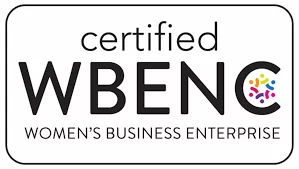We hear from clients across industries on a regular basis: Team members are tired and uninspired.
A potential anecdote: Upskilling or reskilling. Energize your team with new tools and training that will improve their skillset and your bottom line.
Employee and employer loyalty is critical for success. Invest in an upskilling program now and you may inspire team members to see the brighter future ahead.
Upskilling is an opportunity for teams to grow their expertise, learn new programs and techniques, and add to their professional pedigree. Employers, of course, benefit from a stronger, more efficient team who can put the new skills to work to bolster company performance.
As recently reported in Forbes in 2020, “This year’s rapid pace of economic disruption has revealed that perhaps the greatest competitive business advantage is the ability to rapidly develop and leverage talent within a company.” Building and retaining strong teams can be key to company growth. Recognize the worth of current employees and provide opportunities for them to acquire new competencies. Everyone wins.
Professional development is essential in a world that swiftly changes with ultramodern technologies. Automation, cloud computing, artificial intelligence and machine learning have transformed how finance and accounting departments operate. New skills must be learned to stay ahead.
Deloitte’s 2020 Global Human Capital Trends study reported that 53 percent of CEOs and business leaders surveyed agree that “between half and all of their workforce will need to change their skills and capabilities in the next three years.”
Here are five of our top tips for effective upskilling:
1. Encourage microlearning.
Allow your employees to gradually gain new prowess. For example, begin with a brief tutorial about advancements in software programs that will be implemented. Over time, add additional tutorials. Learning should be a benefit, not a grievance.
2. Capitalize on existing resources.
Evaluate what learning platforms you currently use. Leverage connections with industry organizations that provide instructive webinars. Review educational training options with Coursera, LinkedIn Learning or Degreed. Offer online training for remote workers.
3. Organize a mentoring program.
We all have something to teach. Mentors and mentees, from experienced employees to recent college graduates, can enlighten one another with knowledge sharing. Job shadowing can effectively show versus tell. Thanks to videoconferencing, mentoring can take place anywhere.
4. Invite peer-to-peer (P2P) exchange.
P2P learning originated in the academic world, but in recent years, has been embraced by many leading businesses as a cost-effective tool for upskilling workers. P2P learning is informal, and takes many forms, including employee-led workshops and team projects. Consider this: Ask employees to attend various webinars and present key takeaways to their peers.
5. Offer financial assistance for professional development.
Some continuing education or certifications may require fees. Realize investing in an employee’s strengthened skillset can increase your long-term ROI.
An end to a challenging year is on the horizon. Now’s the time to set a strong foundation for the future with renewed energy and an upskilled team.
Related Articles
Hiring for Aptitude and Attitude vs Skills (ARG)
Working with a Recruiter During COVID-19 (ARG)
Preparing for 2021: Five Questions for Finance Teams in Q3 (ARG)
How CFOs Can Push Past Fear to Resilience (CFO Magazine)





